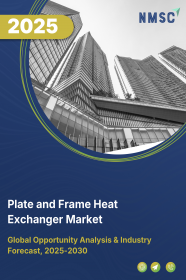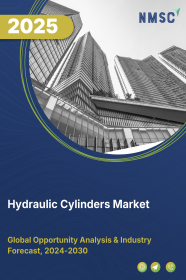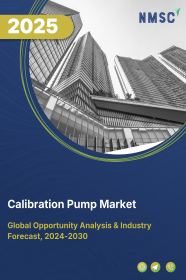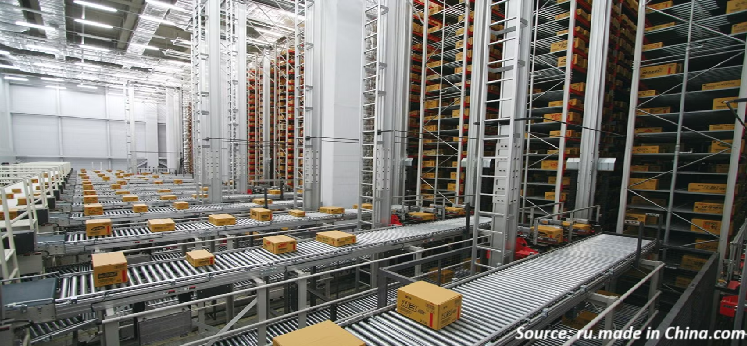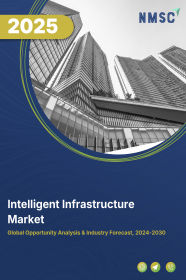
Intelligent Infrastructure Market by Type (Smart Grid, Smart Water Network, Intelligent Transportation Network, and Intelligent Buildings), by Application (Smart Transportation and Smart Infrastructure) and by End-user (Utilities, Transport, Communications, and Built Environment) – Global Opportunity Analysis and Industry Forecast 2024-2030
US Tariff Impact on Intelligent Infrastructure Market
Trump Tariffs Are Reshaping Global Business
Market Definition
The Intelligent Infrastructure Market size was valued at USD 149.2 billion in 2023 and is predicted to reach USD 628.3 billion by 2030 with a CAGR of 22.8% from 2024-2030. Intelligent infrastructure is a type of technology that integrates information technology (IT) and operations technology (OT), advanced data analytics, and machine learning to help optimize and manage physical infrastructures such as buildings, roads, bridges, and utilities. It is designed to automate processes and make them more efficient, reduce costs, and improve safety. These systems are usually connected to the Internet of Things (IoT) and use sensors to gather data about the infrastructure and its environment. This data is then used to generate insights and make decisions about how to best manage the infrastructure. Intelligent infrastructure can be used to better manage traffic, reduce energy consumption, and improve response times to emergency situations.
Market Dynamics and Trends
Growing financial incentives and favourable policies by the government to promote the adoption of smart city solutions drives the growth of the market. For instance, the Ministry of Housing and Urban Affairs of the government of India planned to invest USD 58 billion for the development of smart cities across the country by 2027. These government initiatives, along with increased financial support and favorable policies, aim to improve citizens' quality of life and drive economic growth in the expanding smart city infrastructure landscape.
Moreover, the increasing availability and usage of new technologies such as the internet of things (IoT), artificial intelligence (AI), 5G networks, and cloud computing in intelligent infrastructure solutions are driving the development of intelligent infrastructure. Furthermore, the increasing need for energy efficiency due to rising energy costs and the need for energy independence coupled with growing environmental concerns such as carbon footprint and greenhouse emissions are further driving the growth of the intelligent infrastructure market.
However, the cost of implementing intelligent infrastructure solutions is the major factor restraining the growth of the market. On the contrary, the introduction of geospatial technology such as geographic information system (GIS), remote sensing (RS), and global positioning system (GPS) in intelligent infrastructure is expected to create lucrative opportunities for the intelligent infrastructure market in coming years.
Market Segmentations and Scope of the Study
The intelligent infrastructure market is segmented on the basis of type, application, end-users, and region. On the basis of type, the market is divided into smart grid, smart water network, intelligent transportation network, and intelligent buildings. On the basis of application, the market is further segmented into smart transportation and smart infrastructure. Smart transportation is further segmented into intelligent transportation, parking management, and smart ticketing. The smart infrastructure is further segmented into city surveillance, smart lighting, command and control services, smart grid, smart building, and smart city platforms. On the basis of end-user, the market is classified into utilities, transport, communications, and built environment. Regional breakdown and analysis of each of the aforesaid segments include regions comprising of North America, Europe, Asia-Pacific, and rest of world (RoW).
Geographical Analysis
North America holds the dominant share of the intelligent infrastructure market and is expected to continue its dominance during the forecast period. This is attributed to factors such as the growing adoption of smart cities for addressing the rising demand for living, traveling, and working infrastructure in developed economies such as the U.S. and Canada. For instance, in October 2022, Accelerator for America collaborated with Honeywell to launch the Honeywell smart city accelerator program such as climate resiliency, public safety, operational efficiency, and improved service delivery to promote smart city growth in five the U.S. cities including Cleveland, Louisville, Kansas City, San Diego, and Waterloo.
Moreover, the rising government initiatives in smart city projects in this region is further boosting the growth of the intelligent infrastructure market in this region. For instance, the government of U.S. invested USD 160 million in the smart lighting program in Chicago, replacing 85% of city’s street lights with smart city technology for energy savings and enhanced public safety.
On the other hand, Asia-Pacific is expected to show a steady rise in the intelligent infrastructure market owing to the fast-paced urbanization and growing disposable income coupled with a higher focus on the development of digital infrastructure in this region. According to the latest report published by the UN-Habitat, urbanization is growing at a significant rate in Asia-Pacific region, with more than 2.2 billion people living in urban areas in 2022 and it is expected to grow by 50% - an additional 1.2 billion people by 2050.
Also, the growing investment by developing countries such as China, India, and Thailand for the development of smart cities is further boosting the growth of the market. For instance, in January 2021, the Thailand government agency collaborated with City Possible global network to develop 100 smart cities by 2024. With such significant initiatives underway, the demand for advanced technologies and solutions to support the infrastructure and services of smart cities is poised to rise, creating numerous growth opportunities for the market growth.
Competitive Landscape
Various market players operating in the intelligent infrastructure market include Cisco Systems, Inc., Huawei Technologies Co., Ltd., Atos SE, Hon Hai Precision Industry Co., Ltd., Robert Bosch GmbH, General Electric Company, Siemens Aktiengesellschaft, Larsen & Toubro Infotech Limited, Topio Networks, Samsung Electronics Co., Ltd., Microsoft Corporation, Google LLC, International Business Machines Corporation, Schneider Electric SE, Hitachi, Ltd., Sensus, Velodyne Lidar, Inc., Dialog Semiconductor Plc, Koninklijke Philips N.V., and Honeywell International Inc. among others.These market players are adopting various strategies such as product launches and collaboration to remain dominant in the market.
For instance, in May 2022, Hitachi launched Lumada Inspection Insights digital solutions for the inspection, monitoring, and optimization of critical assets. It uses powerful AI to reduce risks and impacts related to storms or fires for a towards sustainable society. Also, in March 2022, Topio Networks launched intelligent infrastructure to digitize national infrastructure and prepare for the next generation of growth. Through this launch, the company aims to integrate Intelligent Infrastructure with rail, road, and other share platform to enhance public services.
Additionally, in October 2021, Huawei entered into partnership with Tatweer Misr to create fully networked smart cities. Through this partnership, the businesses aim to offer technical software solutions that are smart and sustainable to develop a fully interconnected intelligent world.
Moreover, in July 2021, Microsoft Corporation collaborated with the Ministry of Transportation and Communications to bring to life the TASMU Platform for smart city solutions for all enterprises, start-ups, entrepreneurs, and citizens. Furthermore, in May 2021, Velodyne Lidar Inc. launched an intelligent infrastructure solution designed to solve common challenging infrastructure problems using AI-based software to monitor traffic networks and public spaces. The AI-based solution generates real-time data analytics and predictions to improve traffic and crowd flow efficiency.
KEY BENEFITS
-
The report provides quantitative analysis and estimations of the intelligent infrastructure market from 2024 to 2030, which assists in identifying the prevailing market opportunities.
-
The study comprises a deep-dive analysis of the intelligent infrastructure market including the current and future trends to depict prevalent investment pockets in the market.
-
Information related to key drivers, restraints, and opportunities and their impact on the intelligent infrastructure market is provided in the report.
-
Competitive analysis of the players, along with their market share is provided in the report.
-
SWOT analysis and Porters Five Forces model is elaborated in the study.
-
Value chain analysis in the market study provides a clear picture of roles of stakeholders.
KEY MARKET SEGMENTS
By Type
-
Smart Grid
-
Smart Water Network
-
Intelligent Transportation Network
-
Intelligent Buildings
By Application
-
Smart Transportation
-
Intelligent Transportation
-
Parking Management
-
Smart Ticketing
-
-
Smart Infrastructure
-
City Surveillance
-
Smart Lighting
-
Command And Control Services
-
Smart Grid
-
Smart Building
-
Smart City Platforms
-
By End User
-
Utilities
-
Transport
-
Communications
-
Built Environment
By Region
-
North America
-
The U.S.
-
Canada
-
Mexico
-
-
Europe
-
The U.K.
-
Germany
-
France
-
Italy
-
Spain
-
Denmark
-
Netherlands
-
Finland
-
Sweden
-
Norway
-
Russia
-
Rest of Europe
-
-
Asia-Pacific
-
China
-
Japan
-
India
-
South Korea
-
Australia
-
Indonesia
-
Singapore
-
Taiwan
-
Thailand
-
Rest of Asia-Pacific
-
-
Rest of the World (RoW)
-
Latin America
-
Middle East
-
Africa
-
REPORT SCOPE AND SEGMENTATION:
|
Parameters |
Details |
|
Market Size in 2023 |
USD 149.2 billion |
|
Revenue Forecast in 2030 |
USD 628.3 billion |
|
Growth Rate |
CAGR of 22.8% 2024 to 2030 |
|
Analysis Period |
2023–2030 |
|
Base Year Considered |
2023 |
|
Forecast Period |
2024–2030 |
|
Market Size Estimation |
Billion (USD) |
|
Growth Factors |
|
|
Countries Covered |
28 |
|
Companies Profiled |
20 |
|
Market Share |
Available for 10 companies |
|
Customization Scope |
Free customization (equivalent to up to 80 working hours of analysts) after purchase. Addition or alteration to country, regional, and segment scope. |
|
Pricing and Purchase Options |
Avail customized purchase options to meet your exact research needs. |
KEY PLAYERS
-
Cisco Systems, Inc.
-
Huawei Technologies Co., Ltd.
-
Atos SE
-
Hon Hai Precision Industry Co., Ltd.
-
Robert Bosch GmbH
-
General Electric Company
-
Siemens Aktiengesellschaft
-
Larsen & Toubro Infotech Limited
-
Topio Networks
-
Samsung Electronics Co., Ltd.
-
Microsoft Corporation
-
Google LLC
-
International Business Machines Corporation
-
Schneider Electric SE
-
Hitachi, Ltd.
-
Sensus
-
Velodyne Lidar, Inc.
-
Dialog Semiconductor Plc
-
Koninklijke Philips N.V.
-
Honeywell International Inc.

















 Speak to Our Analyst
Speak to Our Analyst



